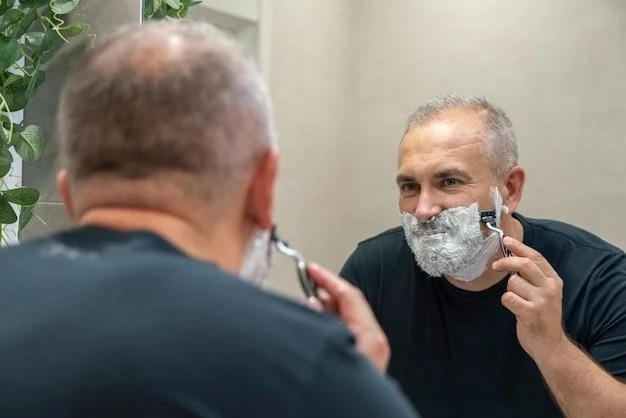Overview of Say-Barber-Miller Syndrome
Say-Barber-Miller syndrome is a rare condition characterized by unique facial features, microcephaly, developmental delays, and growth abnormalities.
Say-Barber-Miller syndrome is a rare genetic disorder characterized by microcephaly, developmental delay, unique facial features, and growth issues.
Definition and Characteristics
Learn about Say-Barber-Miller syndrome, a rare genetic disorder with distinct facial features, microcephaly, and growth issues.
Genetic Mutation
Understanding the genetic mutation associated with Say-Barber-Miller syndrome is crucial for diagnosis and treatment decisions.
Inheritance Pattern
Understanding the inheritance pattern of Say-Barber-Miller syndrome is essential for assessing the risk of passing the condition to offspring.
Symptoms and Clinical Presentation
Recognize the unique facial features, microcephaly, developmental delays, and growth issues in Say-Barber-Miller syndrome.
Facial Features
Recognize the distinct facial features associated with Say-Barber-Miller syndrome, including a sloping forehead, beaked nose, and micrognathia.
Neurodevelopmental Aspects
Understand the neurodevelopmental challenges associated with Say-Barber-Miller syndrome, including developmental delays and intellectual disabilities.
Growth Abnormalities
Identify the growth abnormalities seen in individuals with Say-Barber-Miller syndrome, such as postnatal growth retardation and developmental delays.

Diagnosis and Differential Diagnosis
Facilitate prompt recognition of Say-Barber-Miller syndrome through detailed clinical assessment and genetic testing.
Diagnostic Tests
Utilize specialized diagnostic tests to confirm the presence of Say-Barber-Miller syndrome, including genetic testing and clinical evaluations.
Distinguishing from Similar Syndromes
Recognize the unique characteristics of Say-Barber-Miller syndrome to differentiate it from similar syndromes with overlapping features.
Treatment and Management
Implement individualized care plans involving multidisciplinary teams to address the complex needs of individuals with Say-Barber-Miller syndrome.
Multidisciplinary Approach
Implement a comprehensive care approach involving various specialists to address the diverse needs of individuals with Say-Barber-Miller syndrome.
Therapeutic Interventions
Explore therapeutic strategies tailored to address the specific needs of individuals with Say-Barber-Miller syndrome, focusing on developmental milestones and quality of life improvements.
Prognosis and Complications
Understand the long-term outlook and possible complications associated with Say-Barber-Miller syndrome to optimize care.
Long-Term Outlook
Gain insight into the long-term prognosis for individuals affected by Say-Barber-Miller syndrome, including potential challenges and quality of life considerations.
Potential Complications
Be aware of potential complications that may arise in individuals with Say-Barber-Miller syndrome, such as skeletal anomalies and hypogonadism.
Research and Ongoing Studies
Stay informed about the current research efforts and collaborative initiatives focused on Say-Barber-Miller syndrome.
Current Research Efforts
Stay informed about the latest advancements and ongoing studies focused on understanding and managing Say-Barber-Miller syndrome. Collaborate with researchers for improved care outcomes.
Collaborative Initiatives
Engage with collaborative initiatives that aim to advance the understanding and treatment options for individuals affected by Say-Barber-Miller syndrome.
Support Resources for Patients and Families
Access patient advocacy groups and counseling services to navigate the challenges of Say-Barber-Miller syndrome with professional support.
Patient Advocacy Groups
Connect with patient advocacy groups dedicated to supporting individuals and families affected by Say-Barber-Miller syndrome for guidance, information, and emotional assistance.
Explore counseling and mental health services tailored for individuals and families navigating the challenges of Say-Barber-Miller syndrome for emotional support and coping strategies.
Lifestyle Recommendations and Coping Strategies
Adopt healthy living guidelines and utilize psychological support techniques to enhance the quality of life for individuals with Say-Barber-Miller syndrome.
Counseling and Mental Health Services
Access counseling and mental health services to support individuals and families in coping with the challenges of Say-Barber-Miller syndrome.
Psychological Support Techniques
Explore psychological support techniques designed to help individuals and families cope with the challenges of Say-Barber-Miller syndrome, promoting emotional well-being and resilience.

Educational Considerations for Individuals with Say-Barber-Miller Syndrome
Explore special education needs and learning support programs tailored to individuals with Say-Barber-Miller syndrome.
Special Education Needs
Address the special educational requirements of individuals with Say-Barber-Miller syndrome through tailored support programs and services.
Learning Support Programs
Discover tailored learning support programs designed to meet the educational needs of individuals with Say-Barber-Miller syndrome, promoting academic and personal growth.
Impact on Family Dynamics and Relationships
Support family dynamics affected by Say-Barber-Miller syndrome with family support networks and relationship counseling services.
Family Support Networks
Access family support networks to receive guidance and assistance in navigating the impact of Say-Barber-Miller syndrome on family dynamics and relationships.
Relationship Counseling
Access relationship counseling services to strengthen family bonds and navigate the impact of Say-Barber-Miller syndrome on relationships within the family unit.
Public Awareness and Advocacy Efforts
Spread awareness and advocate for research funding to support individuals and families affected by Say-Barber-Miller syndrome.
Spreading Awareness
Promote awareness about Say-Barber-Miller syndrome through educational initiatives and advocacy efforts to ensure better understanding and support for affected individuals and families.
Advocating for Research Funding
Engage in advocacy efforts to secure research funding aimed at advancing the understanding and management of Say-Barber-Miller syndrome, ensuring better care outcomes for affected individuals.
Addressing Stigma and Misconceptions Surrounding Say-Barber-Miller Syndrome
Challenge stereotypes and promote inclusivity to reduce stigma and misconceptions about Say-Barber-Miller syndrome, fostering a supportive and understanding environment.
Challenging Stereotypes
Challenge stereotypes associated with Say-Barber-Miller syndrome to foster a more inclusive and supportive environment for affected individuals and their families.
Promoting Inclusivity
Advocate for inclusivity to dismantle stigmas and foster an understanding environment for individuals and families affected by Say-Barber-Miller syndrome.
Future Directions in Say-Barber-Miller Syndrome Management
Stay informed about emerging therapies and potential breakthroughs in the management of Say-Barber-Miller syndrome for enhanced care outcomes.
Emerging Therapies
Stay updated on emerging therapies that hold promise for the management of Say-Barber-Miller syndrome, offering hope for improved treatment strategies and outcomes.
Potential Breakthroughs
Stay informed about potential breakthroughs in the management of Say-Barber-Miller syndrome that could lead to improved treatment options and outcomes for affected individuals.
Conclusion⁚ Empowering Individuals with Say-Barber-Miller Syndrome
In conclusion, empower individuals with Say-Barber-Miller syndrome by promoting awareness, challenging stereotypes, fostering inclusivity, and supporting research to improve care and outcomes.
